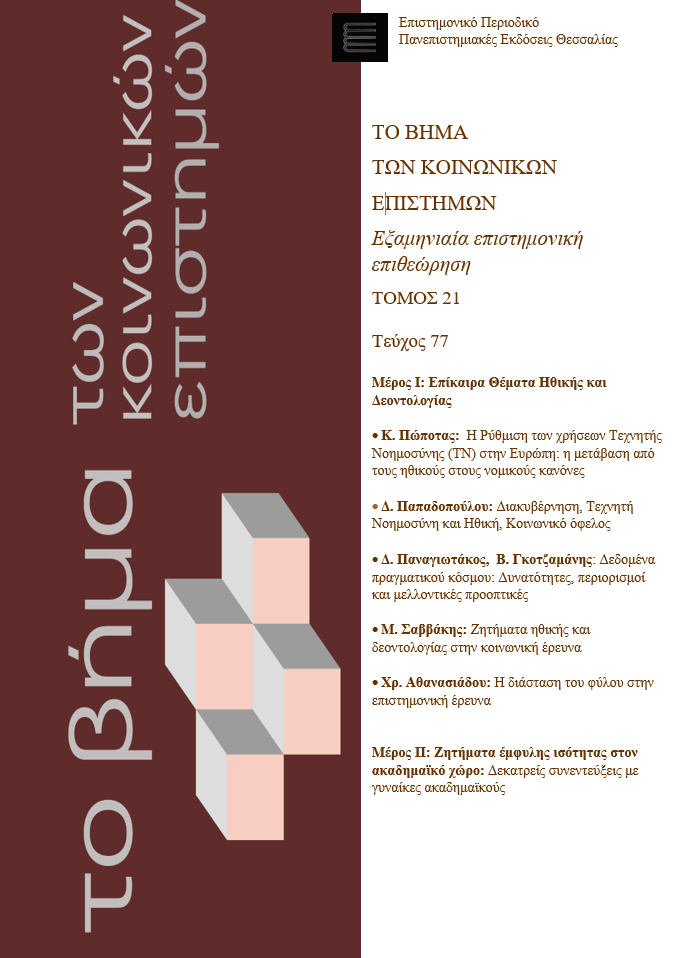Regulating the use of Artificial Intelligence (AI) in Europe: the transition from ethical to legal rules
DOI:
https://doi.org/10.26253/heal.uth.ojs.sst.2023.1928Keywords:
Artificial Intelligence, Ethics, Law, European UnionAbstract
AI’s special nature and exponential growth rate require new ethical standards. This rapidly growing and promising group of technologies is extending constantly over broader areas of societal activity. It presents significant new opportunities but also serious risks. While it can, on the one hand, optimise existing processes, activate innovative activities, provide answers to a wide range of organisational problems, it can also create issues of surveillance, data manipulation, opacity and lack of explanation as for the decisions taken. Research in this area is also in particular need of an ethical framework. The transition from self-regulation based on ethical recommendations to posed legal rules and restrictions, an approach pioneered by the European Union, raises new problems, above all the question to what extent legal provisions can improve the protection of individuals from the introduction of AI into modern life, without hindering technical development and the possibility of positive use of artificial intelligence.

